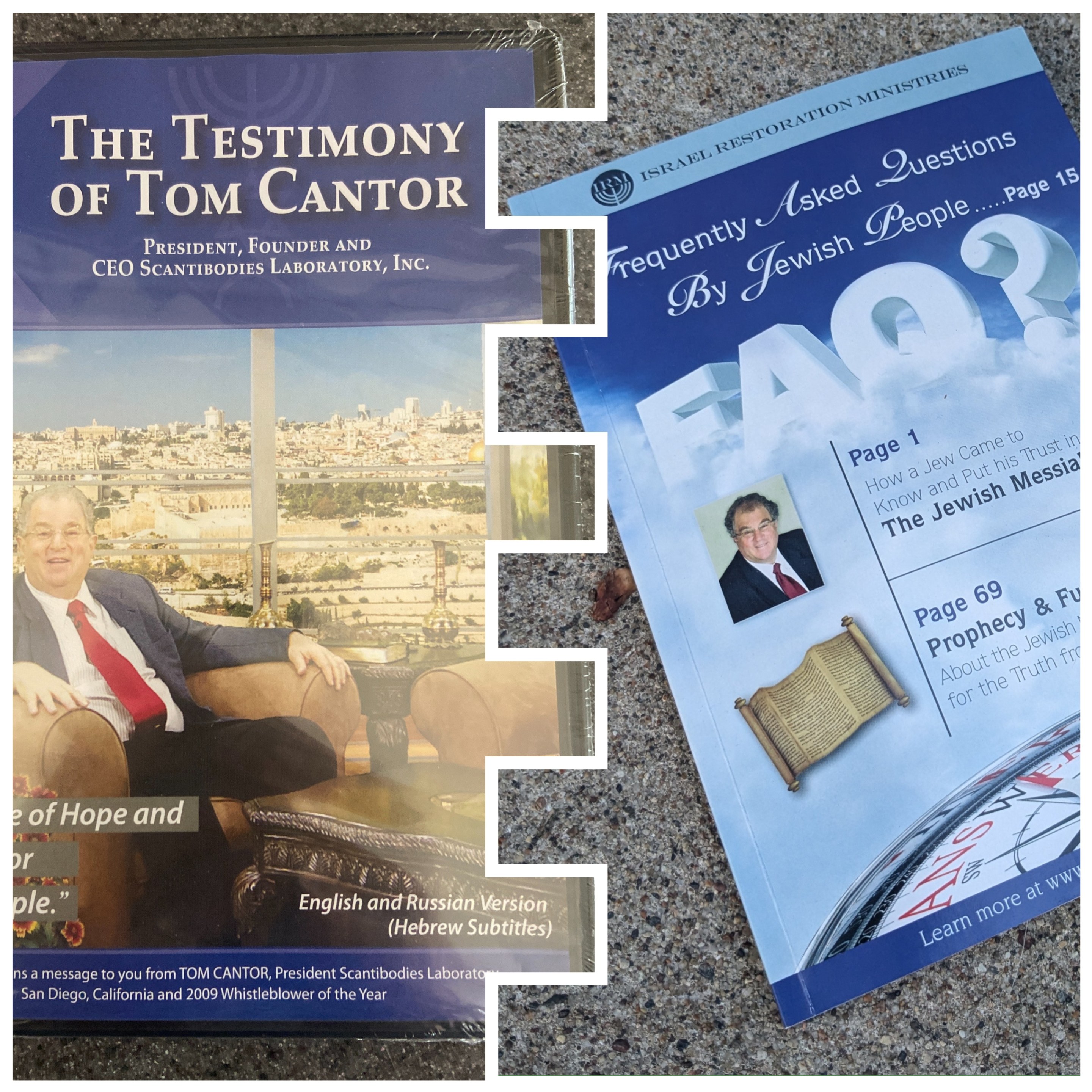In Hey, What’s the Deal With… we’re tackling everyday oddities, random curiosities, and what-the-actual-fuck mysteries about life in the Twin Cities. Got a pressing but somewhat trivial Q about something you saw, heard, or thought about while stuck in traffic? Email jay@racketmn.com, and our crack investigative team just might try to figure it out.
Late last week, a Racket reader presented us with a tip from the always lucrative Crazy Crap Appearing on the Stoop beat...
Something strange happened in my neighborhood this morning. I live in south east Minneapolis. There are two delivery people dropping off this DVD [pictured above] to every door in my neighborhood. Weird... not sure why our neighborhood was chosen, and certainly no one asked for this. Seems like the kind of weird thing your newspaper typically takes a little look into. I do not want to draw more attention to this guy, but thought this might be the appropriate place to share. Thanks!
Two things: 1) Thank you for for recognizing our news outlet as the go-to source for "weird thing[s]"; 2) Sorry, we're now going to draw attention to Tom Cantor's odd doorstep blitz of religious materials, as the phenomenon has percolated across the country for years.
In fact, the south Minneapolis author of this very blog post became the recipient the Cantor doctrine around the same time. So, who is Tom Cantor, what is Scantibodies Laboratories, Inc., and why is Messianic Judaism lit appearing alongside my Amazon boxes?
Let's begin with Cantor's autobiographic account, which I suffered through toward the beginning his Frequently Asked Questions by Jewish People... FAQ? booklet. The publisher is billed as Scantibodies, Cantor's California-based biotech firm, though links to other Cantor orgs—Israel Restoration Ministries, Friendship with God, Life & Light Foundation, to name a few—appear sprinkled throughout.
We learn Cantor was raised as in a secular Jewish household in L.A. in the '60s. Prone to drinking and fighting as a teen, Cantor was sent to a Swiss boarding school that couldn't correct his feelings of inner "dirtiness" and "defilement." At his lowest point, around age 19, our protagonist met a nice, 21-year-old Christian woman who introduced him to the Bible. Cantor's parents disapproved of his inner-religion marriage, and his case wasn't helped by how annoying he became after finding Jesus. Consider the following anecdote...
At work I ate lunch with three Gentile co-workers. These were married men who all had mistresses that they talked about during lunch. I wondered if these Gentile men were true Christians. So, I decided to do an experiment to find out. One day the time for my experiment came. When they began to speak about their adultery, I announced to them, "You fellows need Jesus Christ"... Immediately I was excluded from their group.
What follows is a long story about Simon Wasserman, the father of Cantor's Israeli friend. Nutshell version: Wasserman fled Germany during Hitler's rise and settled in Palestine; he ventured back into his home country to recruit his family away with him, was rebuked, and, tragically, his entire family died in the Holocaust.
With severely limited prosaic gracefulness, Cantor arrives at his booklet's thesis...
Do you know, my friend, why I am writing all this to you? It is because I am Simon Wasserman in the sense that I am pleading with you about the reality of the danger of hell. Without trusting in God's sacrifice (the Lord Jesus Christ) the Bible describes you as still in your sins and as such, going straight down the middle of the road to hell; a certain massacre.
You get the idea.
Many, many annotated Bible verses are used to answer the following 34 FAQs, including: "Why didn't the Rabbis tell Jewish people the Lord Jesus Christ is the Messiah?" and "Who really killed the Lord Jesus Christ?" We can't speak to what's on the DVDs Cantor distributed, and question their general utility in the digital streaming age.
In any case, the recent Twin Cities media bombardment is hardly Cantor's first excursion in door-to-door evangelism. While the godly salesman ignored several interview requests from Racket, secondhand accounts of his Jesus pedaling exist online.
Last year, Cantor firehosed copies of his full 2020 autobiography, Changed, to residents of Chicago, New York City, Detroit, St. Louis, and Portland, Oregon, prompting the neighborhood news website Block Club Chicago to issue a report headlined, "Chicagoans Confused, Weirded Out After Author Tom Cantor Mass Mails His Unsolicited Book, Changed."
"It's junk mail for Jesus," concluded the New York Post, apparently the lone outlet that managed to connect with Cantor. “I want them to find what I found. I found the cure for spiritual cancer,” Cantor told the Post, adding that he was diagnosed with physical cancer in 2010. Interestingly, the Post found that in 2019 Cantor was awarded $45 million as part of a $302 million whistleblower lawsuit against Quest Diagnostics Inc., a sum that no doubt helped bankroll his gratis autobiography distribution.
Speaking of Changed (and heads up, depictions of sexual violence follow), its reviews are... not very charitable. Chicagoans tell Block Club Chicago that Cantor seems to portray himself as the victim after his wife was sexually assaulted, writing...
Any hope I had of healing and recovery from her was shattered when she was violated and lost her innocence. All the help I had hoped to get from my relationship with her was now dead.
Jesus Christ, dude.
This bludgeoning Changed review from LA Beat gets into even more explicit detail, as well as some eyebrow-raising findings concerning tax returns from Cantor's various nonprofits. Over at Amazon, the non-free version of Changed has a 2.5 out of 5 star rating, with one reviewer concluding...
The author's treatment of sexuality, his wife's rape, and women in general, is abhorrent... This book is, unsurprisingly, poorly written. I have a degree in English literature and work in publishing so I can also speak with some authority on that. It is, what we in the business, would call trash. Of course you don't need an English degree or to work in publishing in order to see that. This book didn't even burn that well because of the laminate on the cover. Disappointing.
We can't recommend the 96-page booklet, either.






